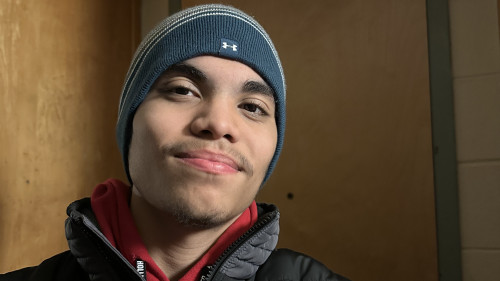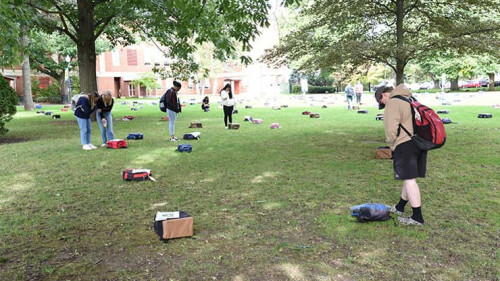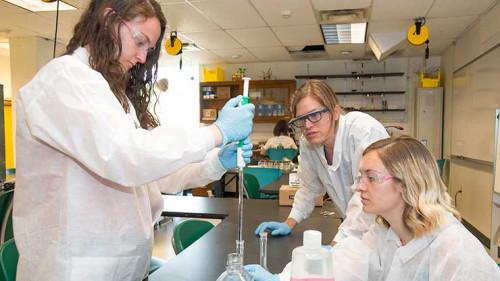
-
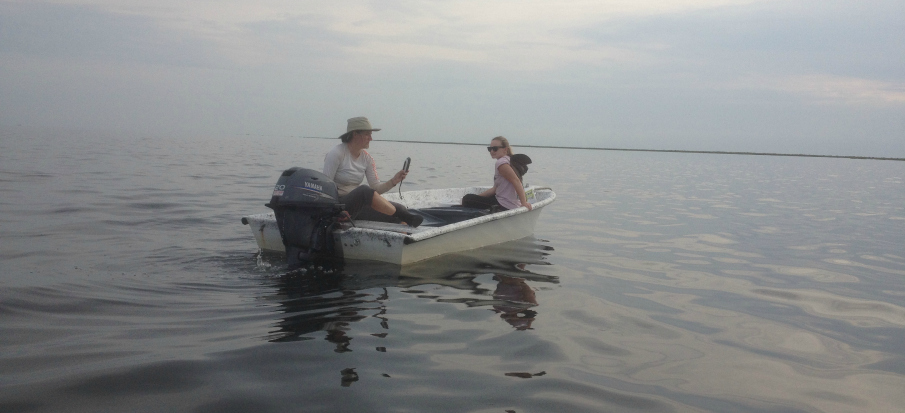 Kelly Dorgan (DISL) and Budai en route for a day of sampling
Kelly Dorgan (DISL) and Budai en route for a day of sampling -
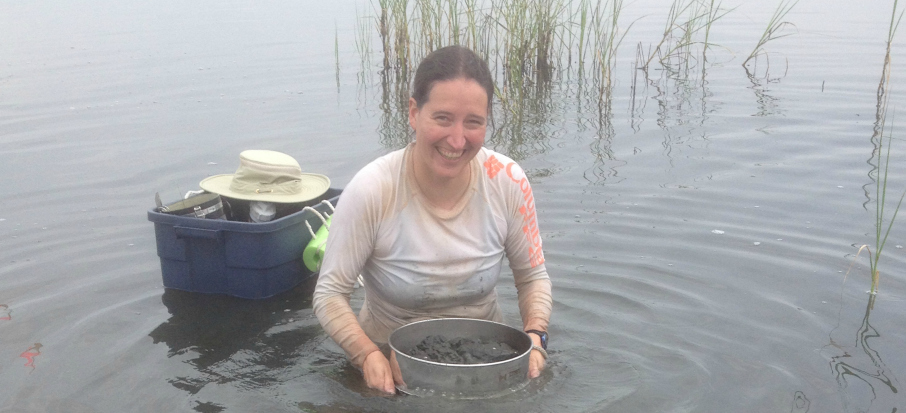 Dorgan sieving a sample
Dorgan sieving a sample -
 Budai sorting a sample
Budai sorting a sample -
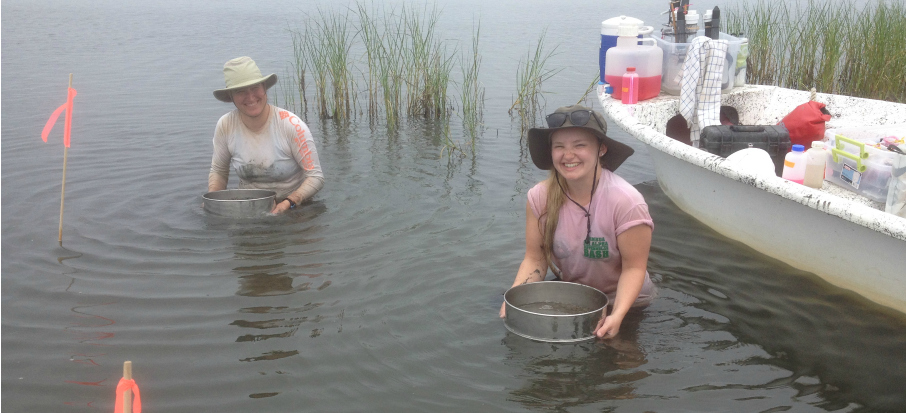 Dorgan and Budai sieving
Dorgan and Budai sieving -
 Budai carrying a mud core
Budai carrying a mud core -
 Budai, Caffray, and Cy Clemo (DISL)
Budai, Caffray, and Cy Clemo (DISL) -
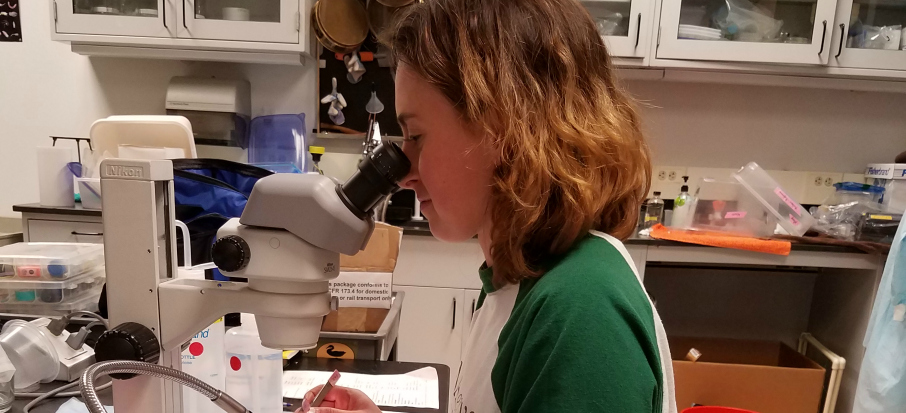 Weldin Identifying samples in Berke's lab
Weldin Identifying samples in Berke's lab -
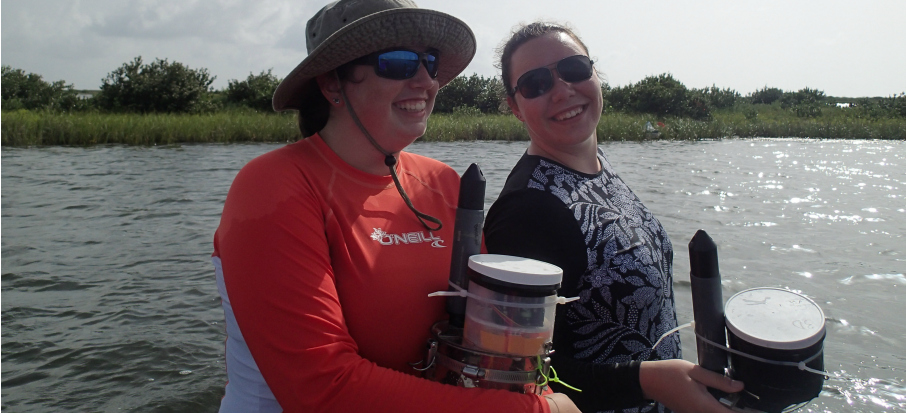 Erin Keller '16 and Caffray, holding oxygen chambers that they designed and built
Erin Keller '16 and Caffray, holding oxygen chambers that they designed and built -
 Professor Berke in the field
Professor Berke in the field
Three Saints and their professor set out for the Dauphin Island Sea Lab this summer for the research opportunity of a lifetime. Now that they’re back, the work continues.
Biology majors, Shelby Budai ’17, Tess Caffray ’17 and Erica Weldin ’17, led by Sarah Berke, Ph.D., assistant professor of biology, traveled to the Dauphin Island Sea Lab through a grant with the Gulf of Mexico Research Initiative. The Dauphin Island Sea Lab, Alabama’s primary marine education and research center, gave these four Saints a summer of incredible hands-on learning opportunities.
“Before I came to Siena, I didn’t have any experience working in the field,” said Budai. “Once I started taking labs at Siena, I fell in love with the hands-on approach to science. Reading out a textbook is interesting, but nothing compares to experiencing it first-hand.”
The group spent their days investigating the changes in community structure of benthic organisms that were affected by the oil spill in the Gulf of Mexico. Their daily duties could range from sorting and identifying samples and assisting in the lab, to participating in field work- taking a tiny motorboat to each site.
“We would spend all day in waist-deep water, digging in the mud. By the end of each day, we were dirty, tired and a little sunburned, but it was so fun! The sense of accomplishment at the end of each day was incredible,” said Budai.
Dr. Berke has been taking students to the field every summer since she arrived in 2012. This was Caffray’s second summer working at the Dauphin Island Sea Lab. Caffray sees these out-of-classroom experiences as a reminder of why she loves her field of study.
“Yes, lab work is important, but without the context of field experience, it begins to fall flat,” she said. “In order to make well-rounded students, I think field experience on some level is necessary.”
Now that they are back in the classroom, they work 8-10 hours a week to identify organisms in the samples they brought back with them. They are also working towards presenting their research during their final undergraduate semester.
“Through hands-on learning you explore theories and other studies that people have conducted and you try applying them to other questions,” said Weldin. “There are many skills I learned that I wouldn’t have gained otherwise.”
While this summer marked the conclusion of the grant, the team will continue to work.
“To any students on the fence about research in a particular field- go for it. Research will give you a unique perspective into how science actually works, how papers are written and how many trials it takes to get to that published experiment,” said Caffray.
